
9 Inspirational Quotes that High-Performing CEOs Should Live By
CEOs are responsible for five key areas of the business: Vision, Cash, People, Key Relationships, and Learning. These responsibilities don’t map neatly into specific business functions. It’s about leading with intention, focusing on the numbers that really matter, and bringing your entire team together to foster a culture of growth and innovation.
Of these five, our coaches often see learning fall off first. No CEO has ever said, “Wow, I have so much free time!” But it’s essential for leaders to expose themselves to a wide variety of thinkers and doers. Yes, read Warren Buffet. But the lessons Marcus Aurelius or Maya Angelou have to teach are just as useful.
The CEOs that get ahead are the ones who know how to learn.
Here are nine quotes from leaders and authors throughout history to help you pause and think a little differently about leadership, responsibility, and growth:
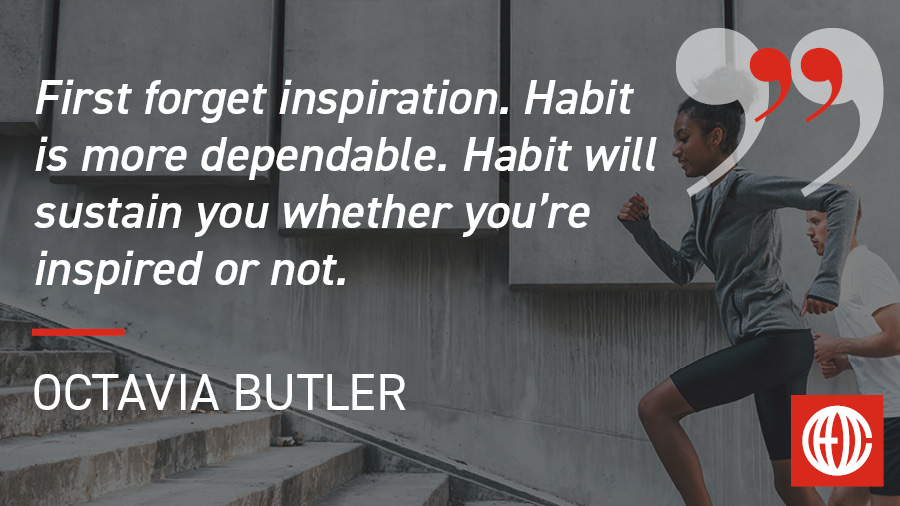
“First forget inspiration. Habit is more dependable. Habit will sustain you whether you’re inspired or not.” —Octavia Butler
Science fiction author Octavia Butler crafted incredible futuristic worlds in classics like Kindred and Parable of the Sower. For all of these fantastical elements, however, she emphasizes practicality and hard work. Inspiration is great, but it’s not what gets the job done.
As a leader, it’s up to you to set the core values of your organization. That often means establishing habits about how you work—how often you communicate, what systems you use, and what kind of behavior is rewarded. Whether inspiration is there or not, showing up each day and working toward your goal is what’s going to make you successful.

“Judge a man by his questions rather than by his answers.” —Voltaire
Enlightenment writer and philosopher Voltaire championed reason, liberty, and equality in his work, encouraging readers to question authority and remain curious about the world around them.
That’s exactly what you need to do with your team. You’ve hired them for a reason, right? If you’ve surrounded yourself with smart, capable folks that complement your skillset, then your job as CEO isn’t to tell them what to do. It’s to ask the questions that spark the next big idea.
If you’re not sure where to get started, try:
- What do you want to achieve?
- What do you have to do to get there?
- What could get in the way of that ideal outcome?
- How do you hold yourself accountable?
These four questions may seem simple, but you can apply them to any challenge you’re facing, whether it’s evaluating a potential M&A deal or trying out a new piece of technology.
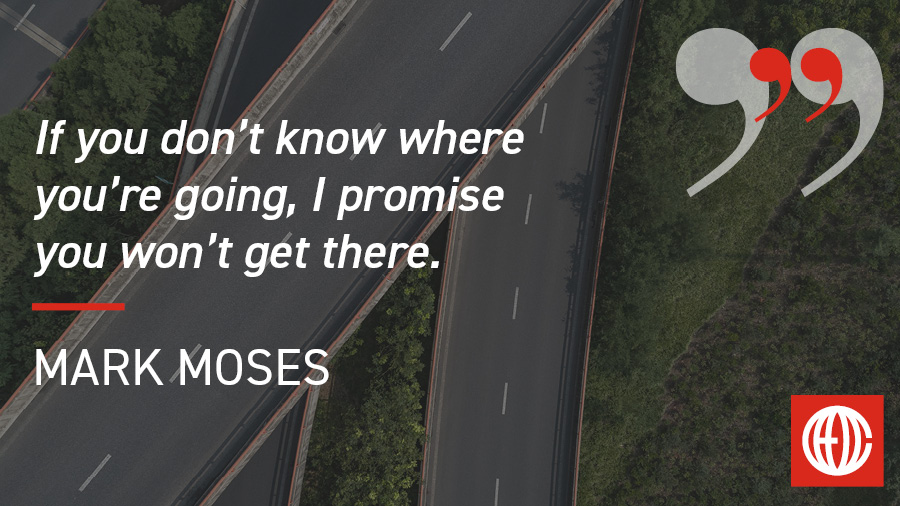
“If you don’t know where you’re going, I promise you won’t get there.” —Mark Moses
CEO and Founding Partner of CEO Coaching International Mark Moses often opens speaking engagements with a few questions. “How many of you know what success looks like in business three years from now? What about one year from now?” Surprisingly, few leaders in the room can raise their hands confidently.
As CEO, you need a clear mission and vision. These terms are used interchangeably, but they’re not the same:
- Vision is the picture of what your company looks like five or ten years from now.
- Mission is the present value your company offers and why accomplishing your vision matters.
You need clarity on what you want the future to be in order to achieve your goals.
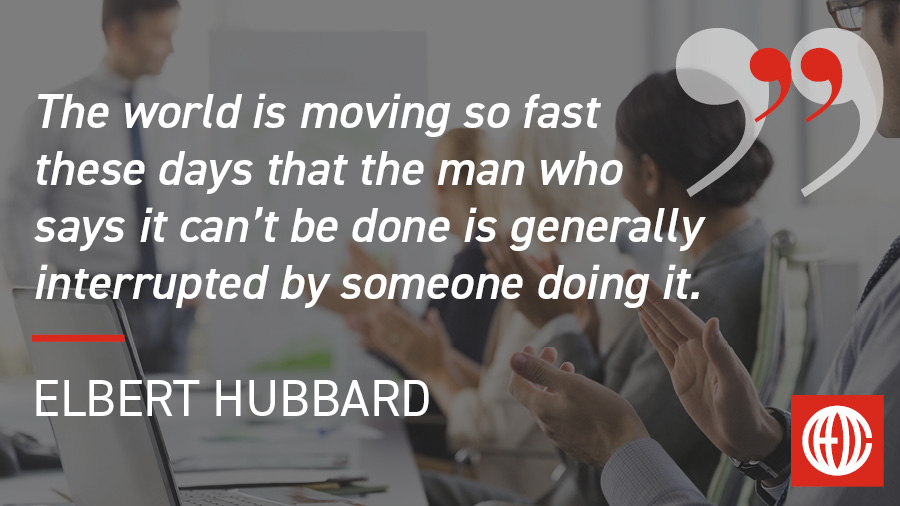
“The world is moving so fast these days that the man who says it can’t be done is generally interrupted by someone doing it.” —Elbert Hubbard
American writer and philosopher Elbert Hubbard may have been writing in the early 1900s, but he could easily have been talking about the pace of business today. Businesses must deal with accelerating global pressures from geopolitical disruptions, supply chain fluctuations, and changing consumer demands.
You can’t predict everything that will happen. A few years ago, the business possibilities with AI were still in the realm of sci-fi. Today, it’s already changing how we write, gather data, work together, and more. We’ll continue to see this pattern repeat itself as new and innovative technologies hit the market. The question is, will you be ready?
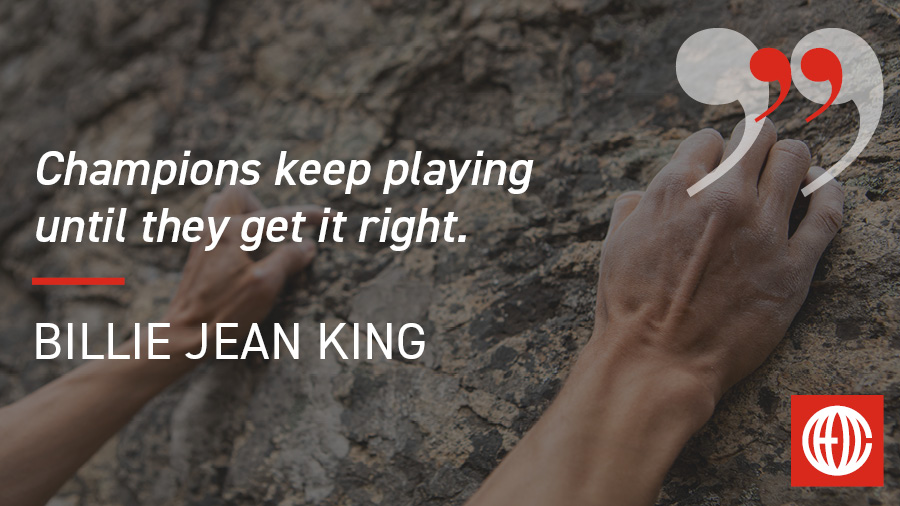
“Champions keep playing until they get it right.” —Billie Jean King
No one is perfect. Tennis legend Billie Jean King won 39 major championship titles, winning 80% of her matches. But even the best players can’t win every single point, game, or match. What matters is how you respond to missing out on funding from an investor or losing a sale to a competitor. When something like this happens, consider it an opportunity to make your business better.

“Don’t mistake activity with achievement.” —John Wooden
College basketball players average 30 games a season and practice every day they’re not competing. That’s a lot of activity before you make it to March Madness. Legendary basketball coach John Wooden knew there was a big difference between practice and success.
“Busy” often feels like a badge of honor waved around the office. But pulling late nights or constantly working usually means you’ve lost sight of your key priorities (and let’s face it, it’s a recipe for burnout.) You’ll find this at all levels of your organization, not just in the C-Suite.
You have to define the difference between “busy” and “productive.” First, go back to your goals. It’s a delicate balance between providing enough clarity for your team that they feel motivated and enough autonomy that they can determine the path forward based on their skills and resources. Make sure your entire team is aligned around the right goals, and that they cascade down to each level in the organization in a way that fits together.
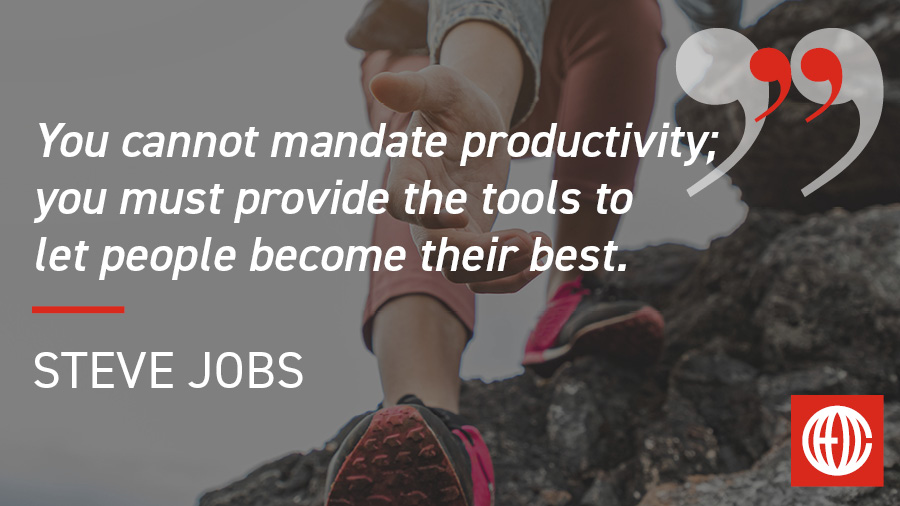
“You cannot mandate productivity; you must provide the tools to let people become their best.” —Steve Jobs
Apple co-founder Steve Jobs was known for his lightning-fast, autocratic leadership style that rewarded long hours and lots of hustle. It was this do-or-die culture that Jobs felt pushed the best of the best to the top.
There’s no one way to lead. Tim Cook, Steve Job’s successor, practices a much more democratic and quiet leadership style, yet the company remains incredibly successful.
That’s the difference between management and leadership. As CEO, you don’t have the bandwidth to micromanage any business processes or people. Your job is to set your team up for success by creating the right systems, hiring the right people, and setting the direction. From there, it’s guiding your team to become their best.

“Everyone needs a coach.” —Bill Gates
Microsoft co-founder Bill Gates programmed his first piece of software at age 13. Today, he’s one of the wealthiest people in the world with a net worth of $129 billion. While his talent and business acumen is undeniable, Gates also consistently surrounds himself with people to learn from—and he has benefited from the teachings of many different mentors and coaches over his successful career.
As Gates says, everyone needs a coach. At CEO Coaching International, our highly trained and battle tested executive coaches have years of experience helping executives achieve their goals, whether it’s building a better work/life balance, building a healthy team dynamic, or growing profits.
See how our 1:1 coaching can help your team achieve your goals and make BIG happen.
About CEO Coaching International
CEO Coaching International works with CEOs and their leadership teams to achieve extraordinary results quarter after quarter, year after year. Known globally for its success in coaching growth-focused entrepreneurs to meaningful exits, the firm has coached more than 1,500+ CEOs and entrepreneurs across 100+ industries and 60 countries. Its coaches—former CEOs, presidents, and executives—have led businesses ranging from startups to over $10 billion, driving double-digit sales and profit growth, many culminating in eight, nine, or ten-figure exits.
Companies that have worked with CEO Coaching International for two years or more have achieved an average revenue CAGR of 25.9%, nearly 3X the U.S. average, and an average EBITDA CAGR of 39.2%, more than 4X the national benchmark.
Discover how coaching can transform your leadership journey at ceocoachinginternational.com.
Learn more about executive coaching | Meet our world-class coaches





